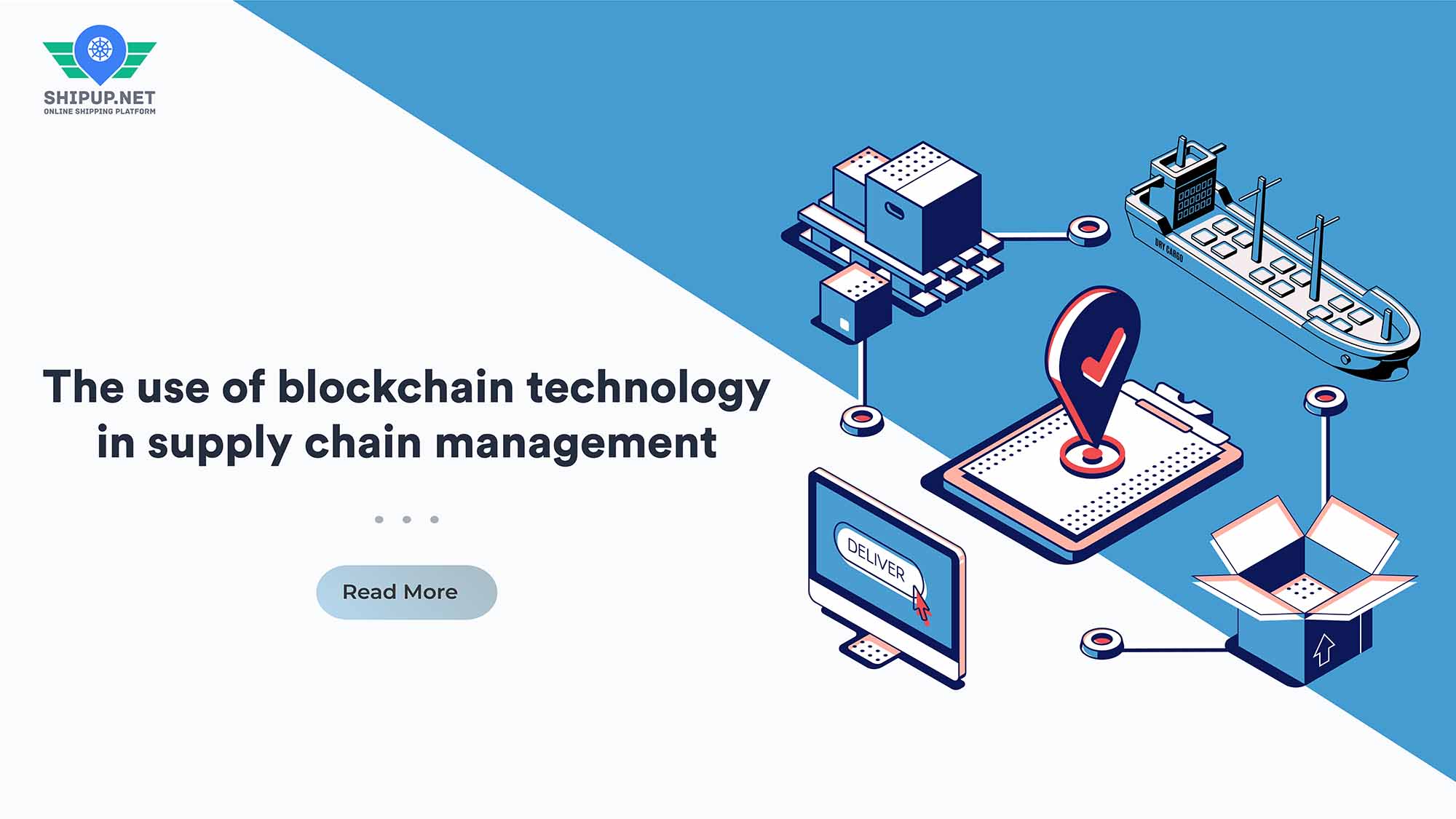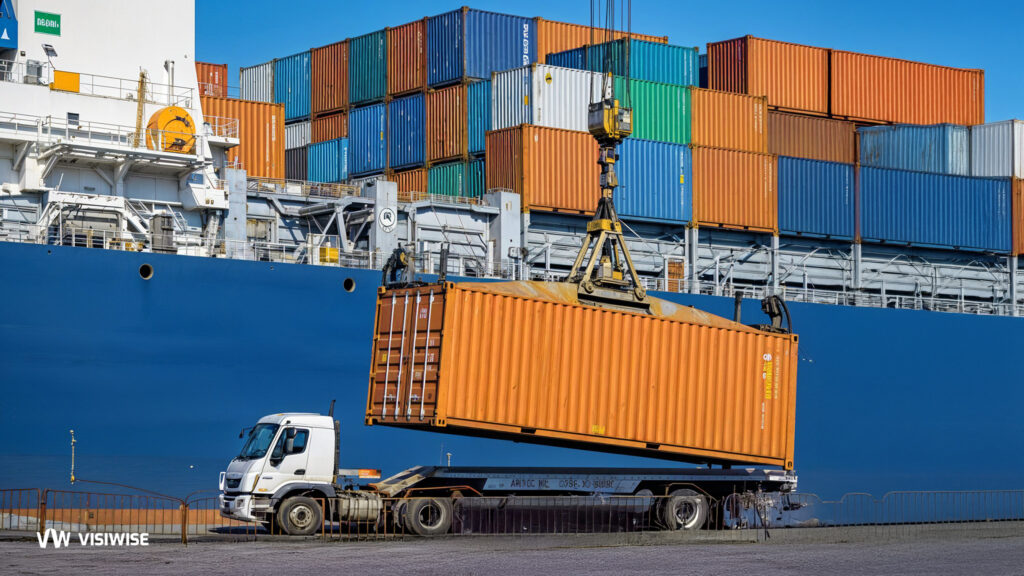Supply chain management has been an integral part of businesses since the earliest trade routes were established. From ancient Silk Road traders to modern-day e-commerce giants, efficient and transparent supply chains have always been the key to success. However, with increasing global trade and complex logistics, traditional supply chain management systems are often marred with delays, disputes, and a lack of transparency.
But what if there was a technology that could revolutionize the way supply chains are managed? Enter blockchain technology – a new technology that promises to bring transparency, traceability, and trust to supply chain management. In this blog post, we will explore how blockchain technology transforms the supply chain landscape and what benefits it offers businesses.
Understanding Supply Chain Management
In today’s global marketplace, companies need to have effective supply chain management to ensure smooth and efficient operations. Supply chain management refers to the process of controlling the production flow from acquiring raw materials to delivering the final product or service to the customer. It involves the movement of materials, information, and finances associated with a good or service.
The Components of Supply Chain Management
The traditional supply chain management system comprises planning, sourcing, manufacturing, delivering, and after-sales services. The process starts with identifying the customers’ needs and selecting suppliers to source the raw materials for production. The next step is to decide whether the manufacturing process will be outsourced or done in-house. After the production is completed, the products are delivered to the customers, and after-sales services are provided, including handling product returns and repairs.
Modern Supply Chain Management
Modern supply chain management systems utilize software to manage goods and services from creation to after-sales services. Companies like Amazon have implemented advanced technologies such as robotics and automation to manage the storage and picking of orders. They have also utilized drones for delivering packages in selected regions. With the increasing demand for faster and more efficient supply chain management, companies are constantly seeking ways to improve their operations.
The Evolution of Modern Supply Chain
Supply chain management has evolved significantly with the incorporation of modern technologies such as artificial intelligence (AI), robotics, and blockchain. The digital supply network is a prime example of how data and information from various sources are combined to distribute goods and services along the value chain.
The Impact of AI and Robotics
With the use of AI algorithms, businesses can extract insights from large data sets to proactively manage inventory, automate warehouse processes, optimize critical sourcing connections, and enhance delivery times. AI-powered robots automate various manual tasks, such as order picking and packing, delivering raw materials and manufactured goods, and scanning and boxing items. This helps companies increase efficiency, fulfill orders quickly, and improve customer satisfaction.
The Role of Blockchain in Supply Chain Management
Blockchain is immutable and can be used to track and trace the source of products, identify counterfeit items, and prevent fraud within the value chain. This is particularly useful for perishable goods that must maintain a specific temperature during transportation, such as cheese. By tracking the temperature during the journey, businesses can minimize problems with food quality and ensure that customers receive high-quality products.
In conclusion, the integration of modern technologies into the supply chain has enabled businesses to streamline their operations, increase efficiency, and improve customer satisfaction. As the demand for faster and more efficient supply chain management continues to grow, companies must continue to evolve and adapt to remain competitive in the marketplace.
Blockchain technology and supply chain management
Blockchain technology is a revolutionary innovation in supply chain management that can provide increased transparency, security and efficiency across the value chain. Unlike traditional supply chains, blockchain-based supply chains automatically update transaction records when changes are made, providing enhanced traceability along the entire supply chain network.
Four key actors in blockchain-based supply chain networks
In blockchain-based supply networks, four key actors play roles, including registrars, standard organizations, certifiers, and actors. Registrars provide network actors with distinct identities, while standard organizations develop blockchain rules and technical specifications or standards schemes, such as Fairtrade, for environmentally friendly supply chains. Certifiers certify individuals for involvement in supply chain networks, and actors, such as producers, sellers and buyers, must be certified by a registered auditor or certifier to maintain the system’s credibility.
Increased transparency with blockchain technology
One of the major benefits of blockchain technology in supply chain management is increased transparency. As the concerned parties are required to fulfill a smart contract condition before a product is transferred to another actor, the blockchain ledger is updated with transaction information after all participants have complied with their duties and processes, improving overall transparency across the value chain.
Furthermore, blockchain technology transparently specifies the nature, quantity, quality, location and ownership of product dimensions. As a result, customers can view the continuous chain of custody and transactions from the raw materials to the final sale, eliminating the requirement for a reliable central organization to administer and maintain digital supply chains. In conclusion, blockchain technology can enhance supply chain management by improving transparency, security and efficiency across the value chain network.
How blockchain enhances traceability in the supply chain?
Blockchain technology has emerged as a game-changer in the world of supply chain management. One of its most significant benefits is its ability to enhance traceability along the supply chain network. By using blockchain, concerned parties can easily access information such as price, date, origin, quality, certification, destination, and other relevant data.
Traceability is essential in the supply chain sector as it enables the tracking of inventory and a record of product custody. It involves monitoring products as they move through a complex process, from raw materials to merchants and customers, across many geographic zones. With blockchain’s decentralized open-source ledgers recording data that is replicable among users, transactions can happen in real-time. As a result, blockchain can build a smarter and more secure supply chain that allows for the tracking of products through a robust audit trail with almost concurrent visibility.
Moreover, blockchain enables producers and distributors to record valuable information such as nutritional value, product origin, quality, and the presence of allergens securely. This information is stored on a collaborative blockchain network, giving buyers more assurance that they are buying items from ethical producers, thus promoting sustainable supply chains. If any health concerns or non-compliance with safety standards are discovered, necessary action can be taken against the manufacturer based on the traceability details stored on the distributed ledger
Enhancing Tradability in the Supply Chain with Blockchain
The supply chain industry is rapidly adopting blockchain technology to boost tradability, a unique advantage that comes with using blockchain platforms. Tokenization is the primary method that blockchain platforms use to enhance tradability. Tokenization involves converting a physical asset, such as a product, into a digital asset, which can be traded on the market. Each token is linked to a particular product, allowing it to be exchanged easily and seamlessly.
The automated smart contract payment system is another feature of blockchain that helps enhance tradability. By automating payments through smart contracts, businesses can accurately license software, products and services, reducing the chances of errors or disputes that can slow down the payment process.
Furthermore, blockchain technology provides consensus, ensuring that there is no disagreement over transactions in the chain. The technology tracks ownership records for both physical and digital assets, and every entity uses the same ledger version, making it easier to trade assets without any discrepancies or discrepancies in ownership records. This ability is particularly useful when dealing with complex supply chains involving multiple stakeholders and geographically dispersed regions.
Visiwise Brings Technology to Supply Chain Management
Visiwise Visibility is a revolutionary platform that provides its users with a comprehensive and user-friendly tool to track and manage their ocean shipments with ease. This innovative platform enables users to access real-time information on their shipments, monitor their cargo, and communicate with other parties involved in their supply chain management.
The platform’s powerful features allow users to monitor their shipments at any stage of the shipping process, from the moment the goods leave the warehouse to their arrival at the final destination. The platform provides users with a high level of visibility in their supply chain management by offering detailed information on the shipment’s location, temperature, and humidity. Additionally, Visiwise Visibility enables users to receive alerts and notifications on any potential disruptions or delays in their shipment, allowing them to take prompt action and mitigate any risks.
One of the key advantages of Visiwise Visibility is its ability to integrate with other software and tools used in the logistics industry. The platform integrates seamlessly with other shipping systems, enabling users to access information on their shipments from multiple sources on a single dashboard. This feature saves users time and effort, allowing them to focus on their core business activities instead of managing multiple platforms and tools.



